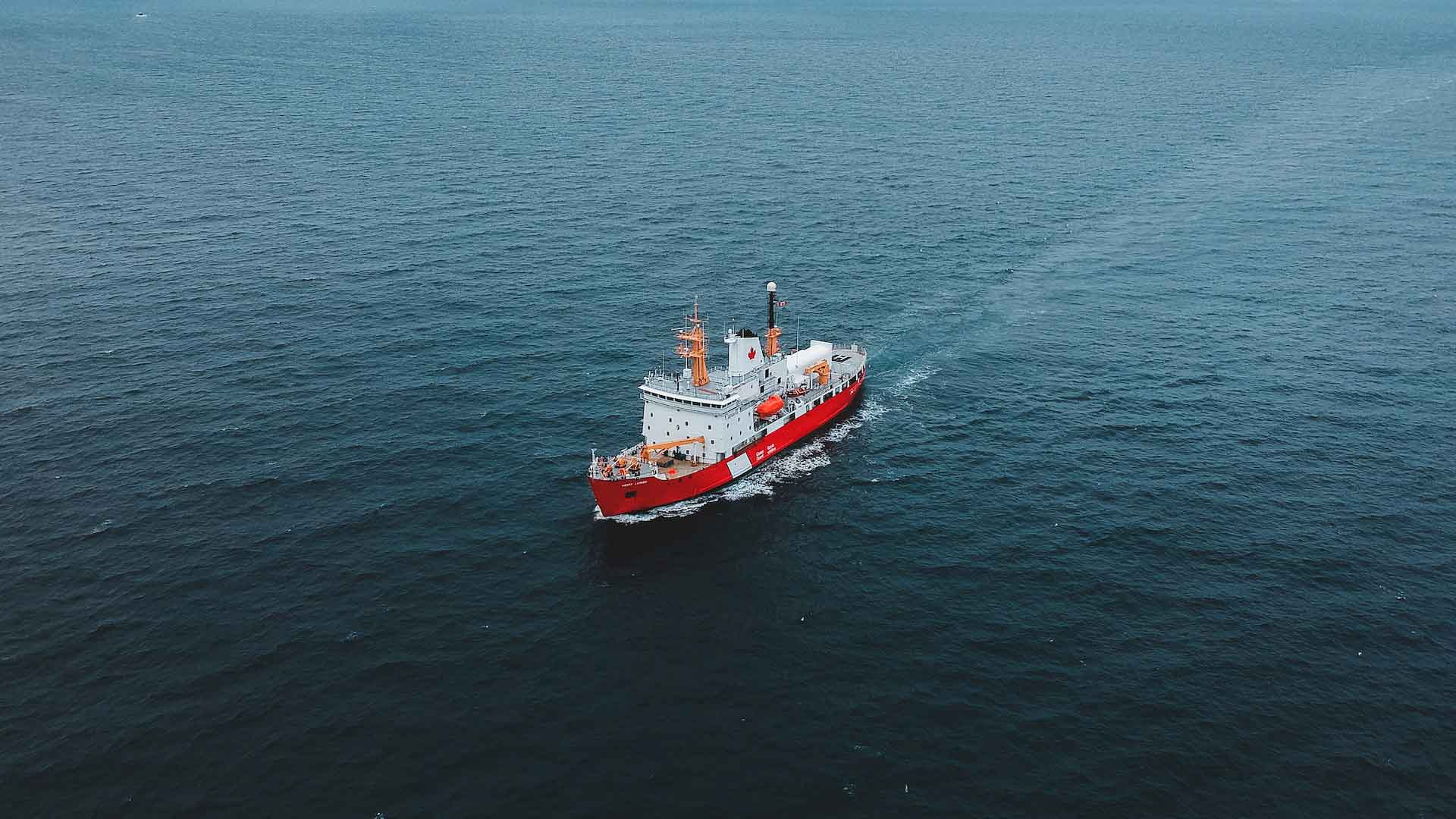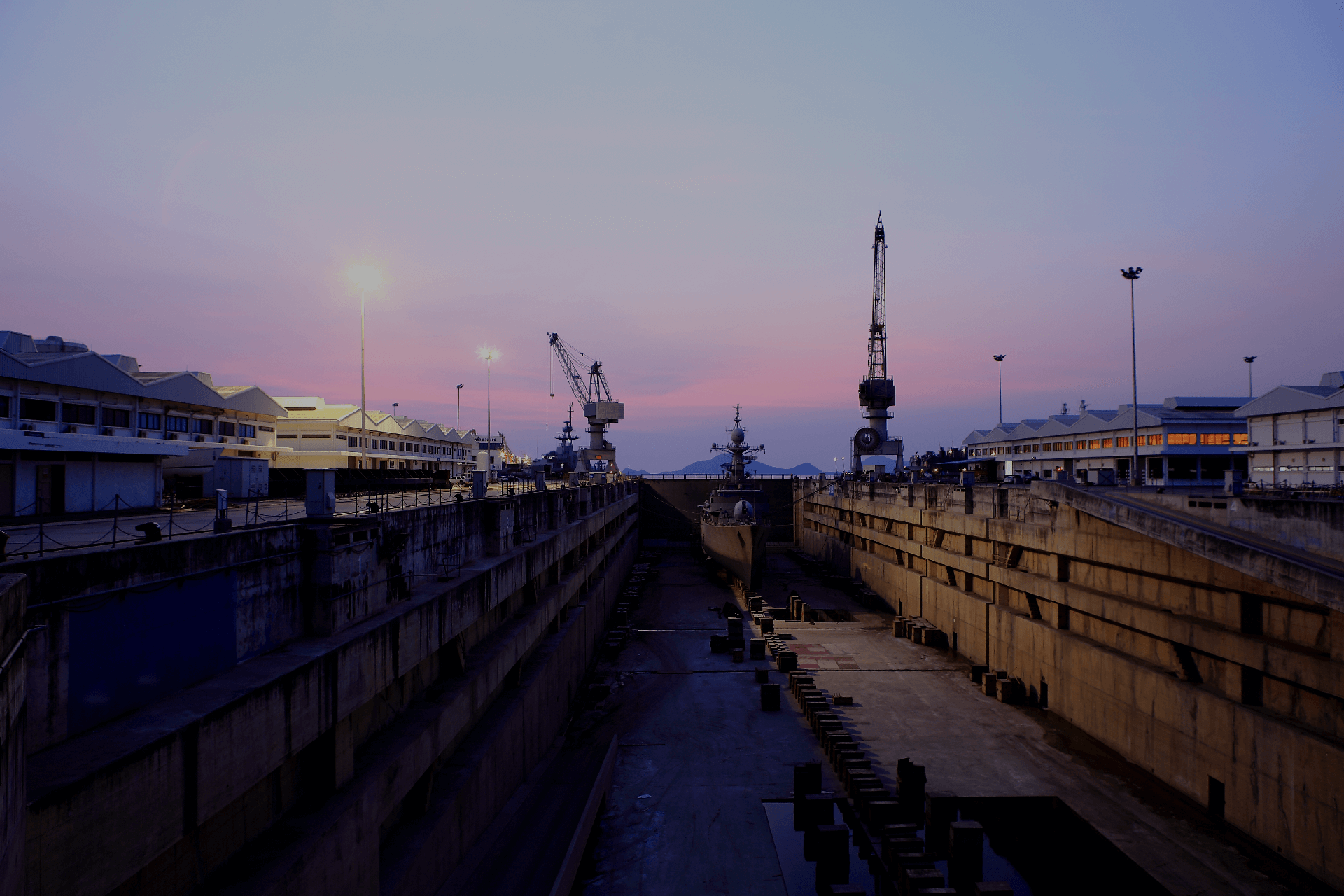Naval Architecture and Offshore Engineering - Specialization
Learn methods to design, construct, test, and operate ships, offshore wind turbines, wave energy converters, and aquaculture facilities – while developing safe, cost-effective, and efficient structures with minimal adverse impacts on the local and global environments.

Naval Architecture and Offshore Engineering
If you are interested in the mechanical aspects of Naval Architecture and Offshore Engineering, you may consider this specialisation under the master programme in Mechanical Engineering. The aim is to prepare you for a maritime industry career or basic research in this field. The focus is on developing safe, cost-effective, and efficient ships and offshore structures, that have minimal adverse impacts on the environment.
This specialisation assumes a background equivalent to the DTU BSc program in Mechanical Engineering with a focus on Maritime Engineering. You should have a basic knowledge of fluid mechanics, ship design, intact and damaged stability, environmental loading, and ship structures.
Advanced technical disciplines within Naval Architecture and Offshore Engineering include: structural assessment of ships, wave theory, wave loads on ships, and ship operations. You will also obtain competences in several closely related topics, such as flow around structures, computational fluid dynamics (CFD) as well as theory of plates and sandwich constructions. You will also learn general aspects of innovation and sustainability.
A full study plan can be seen below together with a list of recommended elective courses. It is mandatory to follow this study plan to obtain a diploma in Mechanical Engineering with the “Naval Architecture and Offshore Engineering” specialisation. In the case of an exchange stay abroad the student has to contact the Head of Study in advance. During your study, elective courses can be chosen to obtain the exact tailored Maritime profile that you desire. Finally, you will do a master’s thesis to focus and sharpen your skills and meet the requirements for the engineer of the future within Naval Architecture and Ocean Engineering. Completing this specialisation will provide you with a diploma stating that you are a Mechanical Engineer with the specilisation “Naval Architecture and Offshore Engineering”.
The following study plan assumes the start of the study in September, such that 1st semester is fall, 2nd semester is spring, 3 semester is fall and the thesis work is carried out in spring. It includes only one spring semester of courses.
Programme specific courses, mandatory for this specialization:
| 41107 | Marine and ocean engineering | 5 | point | Spring F1B (Thurs 13-17) |
| 41111 | Hydrodynamics 2 | 5 | point | Autumn E3A (Tues 8-12) |
| 41216 | Structural assessment of ships | 5 | point | Autumn E3A (Tues 8-12) |
| 41222 | Wave loads on ships and offshore structures | 5 | point | Autumn E4A (Tues 13-17) |
| 41226 | Advanced Wave Hydrodynamics | 5 | point | Spring F5B (Wed 13-17) |
| 41275 | Ship operations | 5 | point | Autumn E2B (Thurs 8-12) |
| 41317 | Computational Fluid Dynamics | 5 | point | Spring F3B (Fri 13-17) |
| 41517 | Stiffened plates and sandwich constructions | 5 | point | Spring F2B (Thurs 8-12) |
| 41636 | Design for Circular Economy | 5 | point | January |
| 41822 | Experimental fluid mechanics | 5 | point | January |
Suggested study plan (start in September)
Innovation in Engineering (Polytechnical... Innovation in Engineering (Polytechnical Foundation)
Elective courses
Quantitative methods to assess... Quantitative methods to assess sustainability (Polytechnical Foundation)
Elective courses
Elective courses
Master thesis
Electives
The list below includes elective courses recommended for the Naval Architecture and Offshore Engineering specialization. The courses are not required to be taken to obtain the specialization.
| 41117 | Marine and Coastal Structures | 5 | point | Autumn E1A (Mon 8-12) |
| 41129 | Turbulent flows | 5 | point | Autumn E4B (Fri 8-12) |
| 41315 | Applied CFD | 5 | point | June |
| 41316 | Advanced CFD | 5 | point | Autumn E3B (Fri 13-17) |
| 41320 | Advanced fluid mechanics | 5 | point | Autumn E2B (Thurs 8-12) |
| 41346 | Internal combustion engines - experimental methods and data processing | 5 | point | Spring F4A (Tues 13-17) |
| 41514 | Dynamics of machinery | 5 | point | Spring F4B (Fri 8-12) |
| 41516 | Anisotropy and fibre composites | 5 | point | Autumn E4A (Tues 13-17) |
| 41525 | Finite Element Methods | 10 | point | Autumn E5 (Wed 8-17) |
| 41526 | Fracture mechanics | 5 | point | Autumn E2B (Thurs 8-12) |
Specializations are merely recommended ways of choosing the courses in the curriculum. Applicants are not admitted to a specialization but to the programme and it is possible to choose among all the courses in the curriculum following the directions given. However, if a specialization has been fulfilled the title of the specialization may be added to the diploma.
